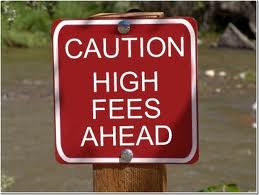Do you ever wonder if mutual funds are the right fit for you? Or what ETFs are exactly? Read below in our ‘Ask Your Money Coach’ column as Tom Feigs answers a common question many people have.
Ask Your Money Coach!
“Should I invest in Mutual Funds or ETFs?”
For most Canadians, mutual funds are a mainstay of their investment portfolio. However, many investors are angry and frustrated with the high fees they’re being charged, and with mutual funds that barely outperform the market – if they do that. (Studies are showing that 70-80% do NOT out-perform.) The big question I am often asked is whether to switch out of mutual funds into Exchange Traded Funds (ETFs). 
In a couple of important respects ETFs are similar to mutual funds: they are packages of investments bundled by a financial institution for sale to the investor, and they’re designed to diversify risk and opportunity. The essential distinction of ETFs is that they are a basket of investments tied to a specific ‘index,’ such as the S&P/TSX composite index, Dow Jones Industrial Average or the S&P 500. Therefore, your ETF investment mirrors the fortunes of whatever index your ETF fund is tied to. If it’s tied to the S&P/TSX, largely comprised of bank and commodity stocks, and it does well, then you do well. If not …well, you get the picture.  Here are some things to consider in making your decision on whether to purchase mutual funds or ETFs:
Here are some things to consider in making your decision on whether to purchase mutual funds or ETFs:
Lower fees are certainly a good reason to consider an indexing strategy. Fees for indexing typically range between 0.5% and 1.0% – as opposed to costs of up to 3.0% for equity mutual funds.
ETF fees are lower for three primary reasons. First, they do not require the same level of market research that mutual funds do, because they simply track an index instead of a professional manager deciding on the merits and demerits of a bundle of stocks. Second, they are mainly sold through discount brokerage firms and this helps to keep costs down. Third, with ETFs you get little or nothing in the way of advice or service.
Lower fees are not everything, however. One of the main downsides to ETFs is that you are largely on your own to research, evaluate, and buy and sell them. There are now hundreds of ETFs to choose from and you have to ask yourself if you’re really willing to do the background investigative work.
One reason to invest in a mutual fund portfolio is the advice that you get – or should get -when investing this way. Yes you pay more, but a good advisor will consider such things as your risk tolerance, net worth, your retirement plans, and the rest of your portfolio mix; to better advise you on the funds that are best suited to you at the various stages of your financial life.
 Whatever route you decide to go – ETFs, traditional or lower cost (‘factory direct’) mutual funds – you will be best served if you keep your investment decisions in line with your overall financial objectives and the time and energy you want to devote to your investments. – Tom Feigs
Whatever route you decide to go – ETFs, traditional or lower cost (‘factory direct’) mutual funds – you will be best served if you keep your investment decisions in line with your overall financial objectives and the time and energy you want to devote to your investments. – Tom Feigs
Tom Feigs is an advice-only Money Coach and Financial Planner – Bringing financial empowerment and awareness to Canadians
Send your questions to info@moneycoachescanada.ca and we will do our best to respond in an upcoming column.





